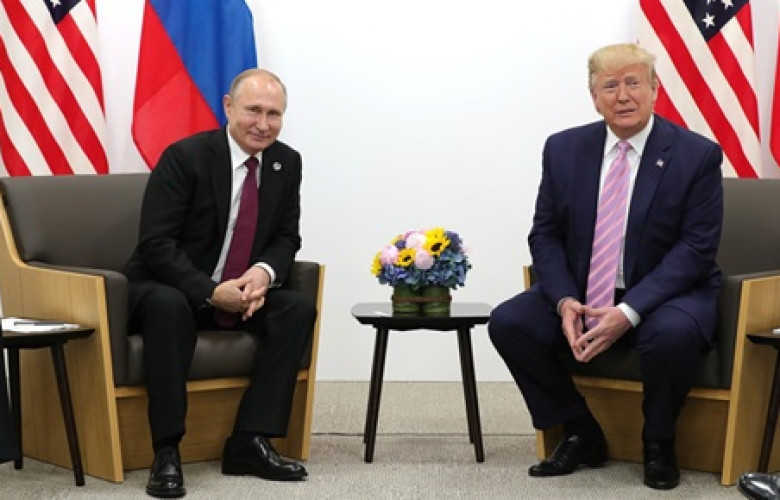Will shock therapy spur a new realpolitik in Europe?
Ian Hill
2025-02-21
RUSSIA
GEOPOLITICS
This article first appeared on The Interpreter, published by the Lowy Institute

Why was Europe surprised? Anyone paying attention to the views of the new US administration should have known Donald Trump has consistently said he was determined to bring an early end to hostilities in Ukraine.
Yet America’s allies in Europe appeared blindsided by the stunning trifecta in the past week of Trump’s call to Russian President Vladimir Putin on 12 February, Defence Secretary Pete Hegseth’s declaration of the same day that Ukraine’s hopes of recovering its pre-2014 territorial integrity was “illusionary” and NATO membership “not realistic”, and then Vice President JD Vance lecturing the Munich Security Conference about democratic freedoms.
Now, with US Secretary of State Marco Rubio in talks with his Russian counterpart Sergey Lavrov, ending a three-year freeze in US-Russia dialogue, allies are floundering.
Europe was not consulted. There are no preconditions for negotiations – and worse, while not everything Moscow wants, the US opening gambit, effectively conceding key Moscow demands and granting the equal partner status that the Kremlin craves, gives a lot upfront without exacting any price. No surprise, then, notwithstanding the Kremlin’s restrained public comment, that the response among Russian commentators was one of glee.
Rubio’s meeting with Lavrov in Riyadh this week emphasised that the outcome must be acceptable to all parties. But Washington evidently sees the negotiations as a bilateral matter between the United States and Russia, at least initially, without the direct involvement of either Ukraine or America’s European allies – and Lavrov earlier confirmed that Russia saw no place for Europe in the negotiations, nor would European peacekeepers be welcome.
Unsurprisingly, then, there’s real concern in Kyiv and European capitals that they will be presented with a fait accompli by Washington and Moscow – and one that essentially meets all Russia’s key demands. And that the process of normalising bilateral US-Russia relations foreshadowed by the Rubio-Lavrov talks will also negate Europe’s tough line on Russia, and its Ukraine-related sanctions on Moscow.
Their fears of Washington and Moscow striking a deal contrary to Ukraine and Europe’s interests will be deepened by the emerging US-Ukraine rift, exposed by Trump’s vituperative response to Volodymyr Zelenskyy’s suggestion that the US leader was operating in a Russian disinformation space, after Trump implied Ukrainian responsibility for the war.
Yet US negotiations with Russia won’t be straightforward, especially if Ukraine isn’t at the table. And Russia, happily pocketing Washington’s pre-emptive concessions, will press for more: in Ukraine (including full control of the four territories it has annexed in eastern Ukraine and renunciation of Kyiv’s aim to join NATO) and more widely, seeking to revise the post-Cold War European security framework, as set out in Moscow’s draft treaties in December 2021 – including drawback of forward deployed NATO forces in its eastern member states.
All this raises fundamental and pressing issues for Europeans. Washington has long demanded that its European allies increase their defence spending and capabilities. But Europe has been slow to do this – with the important exceptions of frontline states in Europe’s east, such as Poland and the Baltic Republics, which have good reason to mistrust Moscow.
Now, just a month into his second term, Trump has shown that he means business about obliging Europeans to do more to safeguard their own security.
Will this shock therapy spur a new realpolitik European security consensus? The record isn’t encouraging.
The more so now when Europe is struggling with serious challenges of growing political fragmentation and economic uncertainty. A hastily convened summit in Paris earlier this week to discuss the new security reality confronting America’s main European allies seemed only to expose their continuing differences.
Yet delay isn’t an option. Practical steps are needed to expand European military capabilities to lessen dependence on the United States. This will involve big increases in defence spending, and the expansion and integration of defence industrial production.
Taking decisive action in these areas is long overdue – and necessary if Washington is to be convinced that Europe is serious about doing more for itself, and thus increase the likelihood of the United States maintaining its commitments to the continent’s security
Moscow, meanwhile, will feel satisfied that, without having to lift a finger, the ructions within the Western alliance this past week will advance its long-term security objective of undermining NATO, weakening trans-Atlantic ties, and drawing Ukraine back within its sphere of influence.
Membership
NZIIA membership is open to anyone interested in understanding the importance of global affairs to the political and economic well-being of New Zealand.